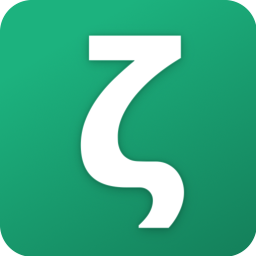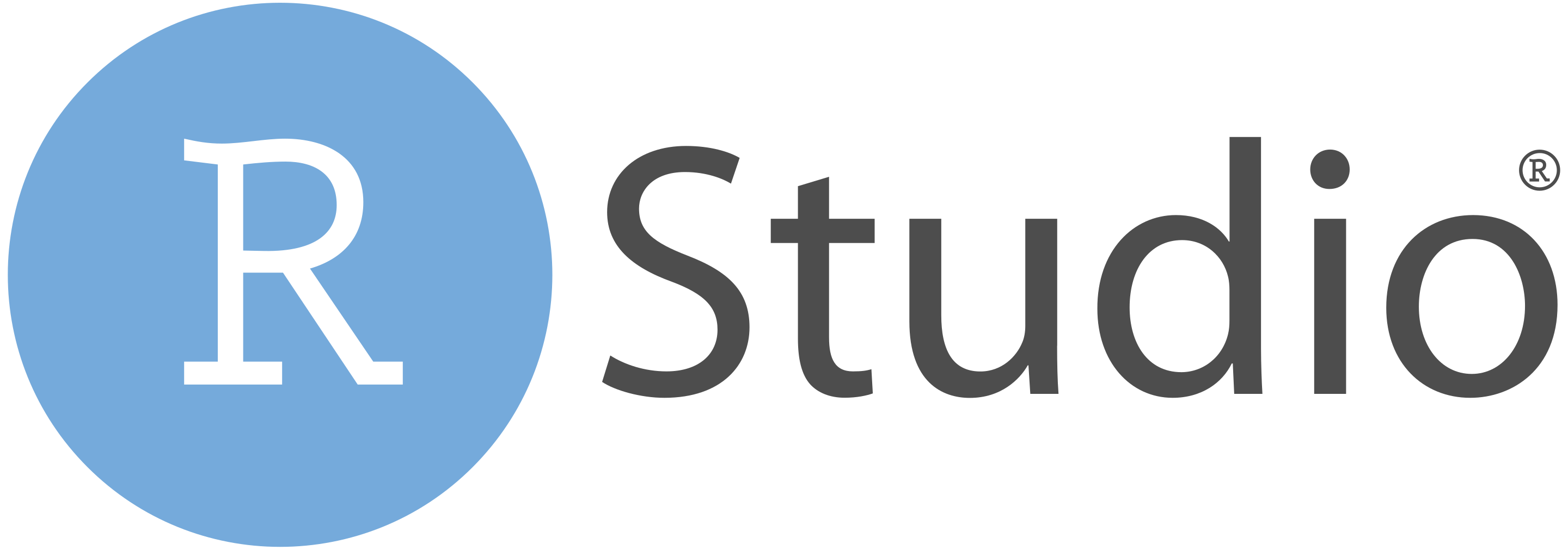COS goes FOSS (Open Science @COS)
– part I –
What is FOSS, why it matters and what can we do about it
Gáspár Jékely
Centre for Organismal Studies, Heidelberg University
@jekely@biologists.social
UNESCO Recommendation on Open Science
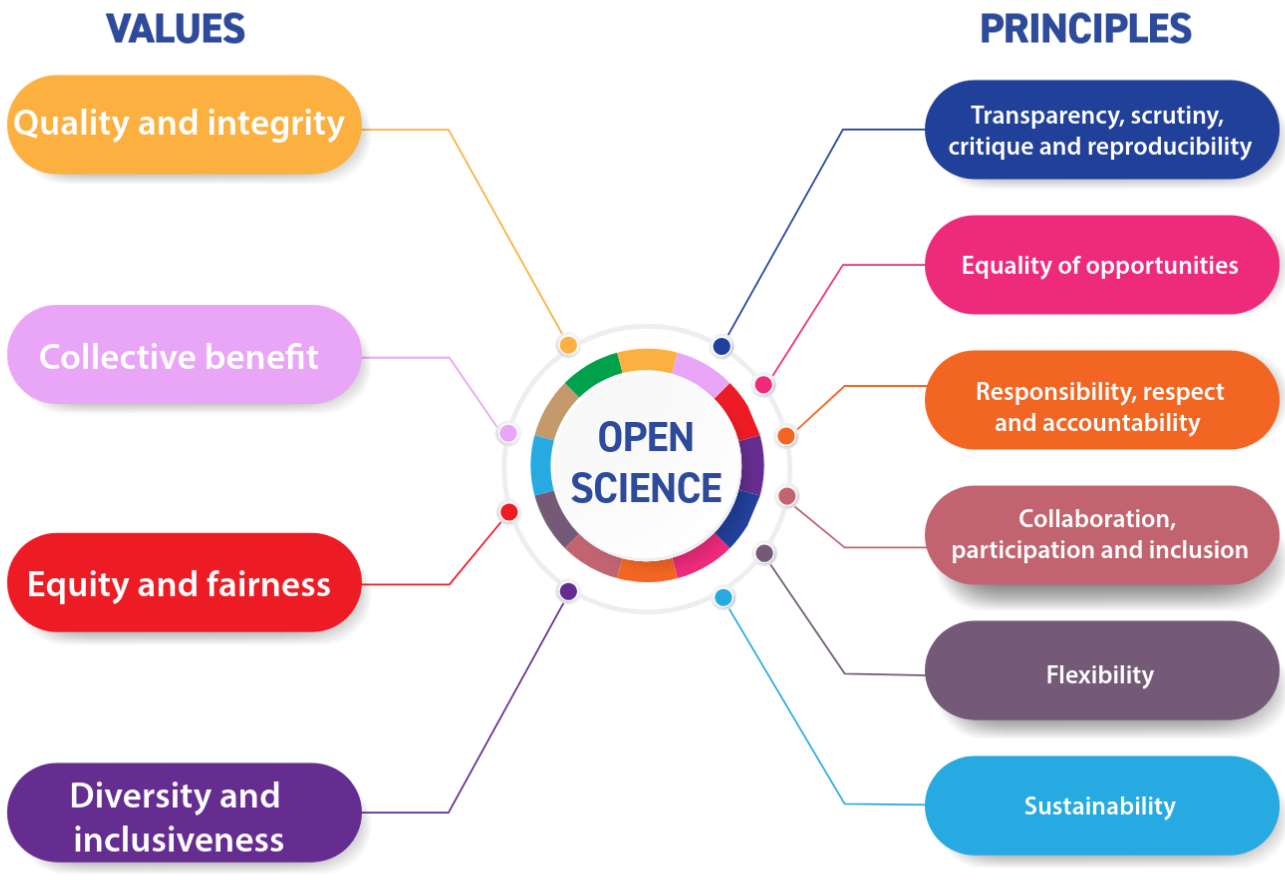
What is open science?
- data, code and text are shared, indexed, properly archived and discoverable
- analyses and workflows to process data are also shared
- reagents (e.g. plasmids), strains (e.g. mutants) shared
- open-source software to maximise reproducibility
- text + data + code = publication
- publications openly accessible, not behind a paywall
- ideally free to read and publish = Diamond OA
- preprints = publication, followed by post-publication peer review
- evaluations not based on simple metrics
- …
Workflow Oligopoly – Publishing



- tools to cover the entire academic workflow
- e.g. Elsevier can now cover the entire workflow
- high risk of vendor lock-in
- common standard is missing
- re-selling user data (surveillance capitalism)
- about $10 billion/year from public money for science goes to profit
Workflow Oligopoly – Analysis and Writing in Science and Education
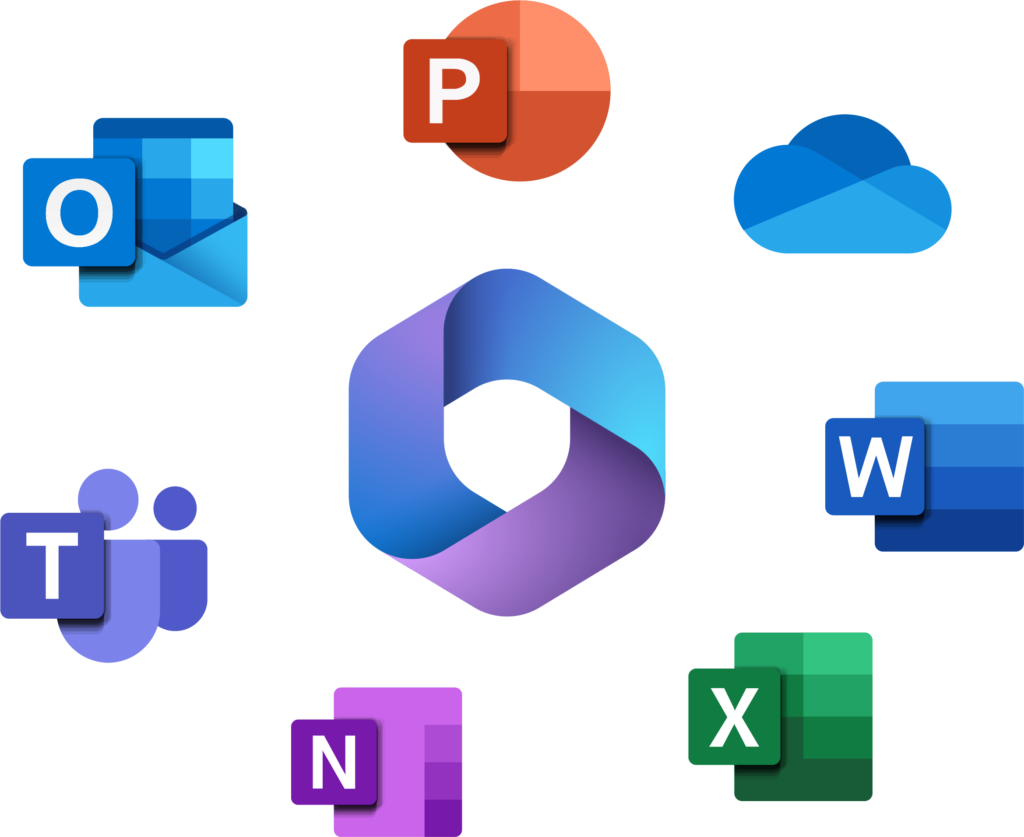
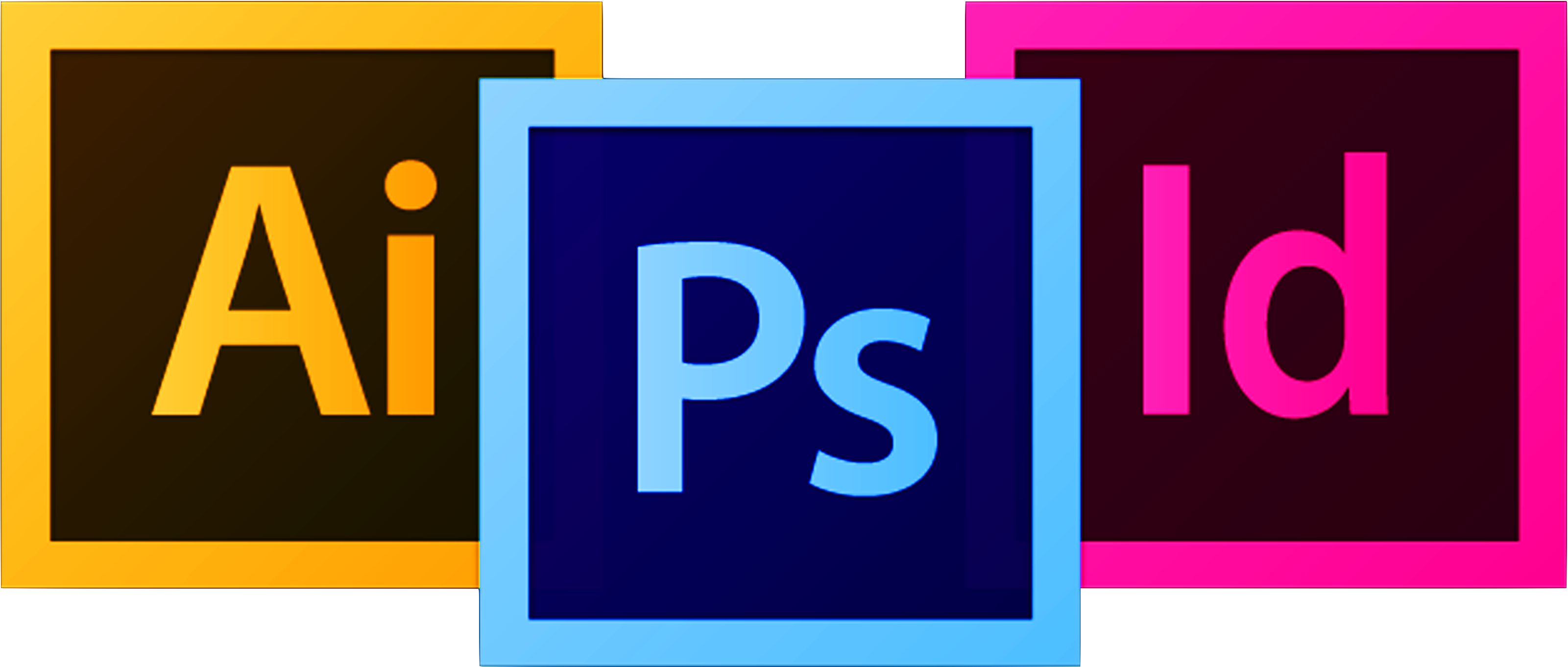
- closed-source
- proprietary formats
- yearly subscription renewals
- non-compatibility ratchet (forces user to upgrade)
- etc.
End of Windows 10
- Support for Windows 10 ends on October 14, 2025
- Strong push to buy new software and hardware
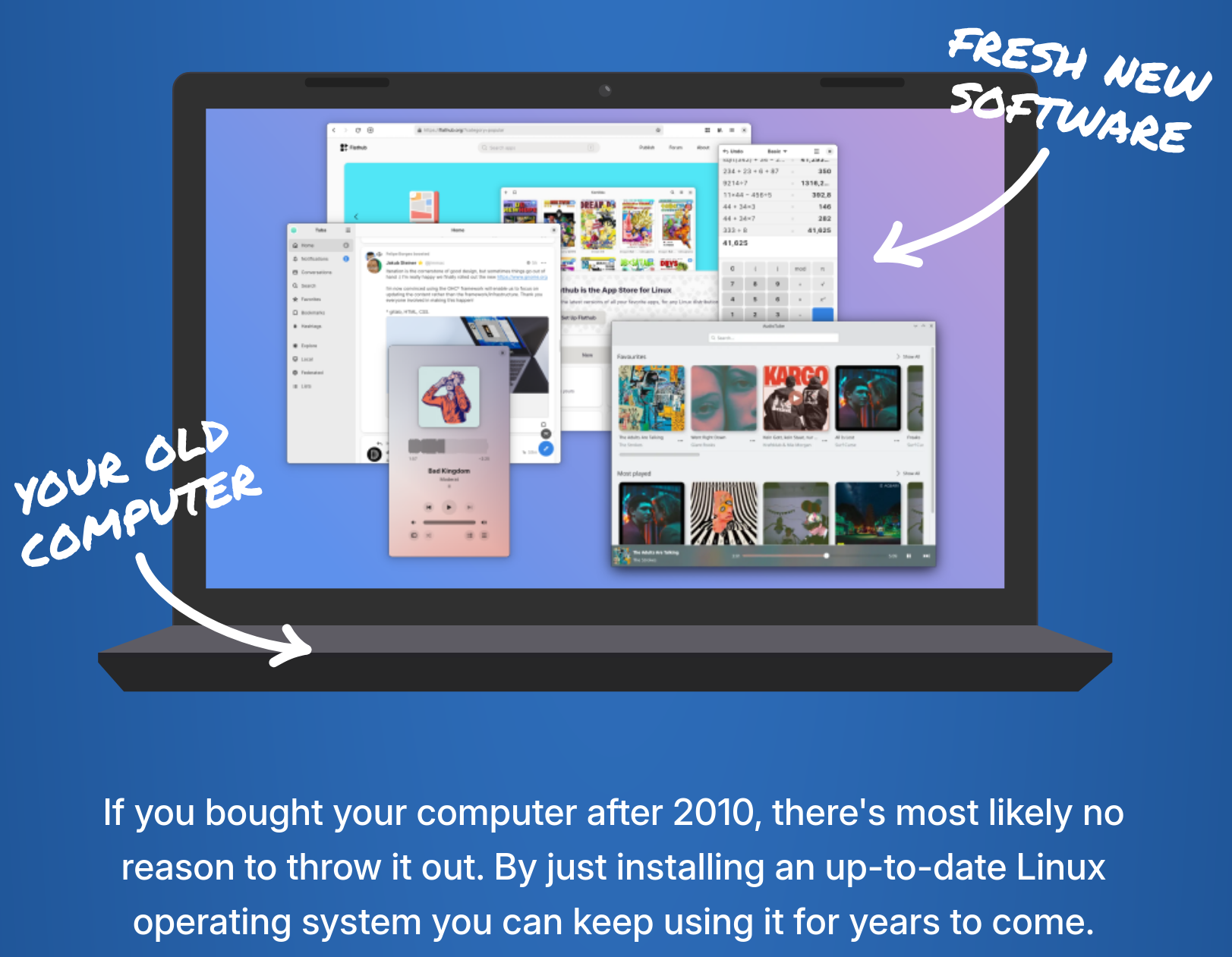
New Windows - a ‘Privacy Nightmare’

- MS marketing: “Your data stays in Europe.”
- MS Legal Director (under oath, in French Parliament):
“No, I cannot guarantee that.”
- Microsoft rolls out AI screenshot tool dubbed ‘privacy nightmare’
- screenshot of your desktop every three seconds
- Recall will be rolled out worldwide
- Information about other people, who cannot consent, will be captured and processed through Recall
- e.g. disappearing messages in Signal etc.
- huge privacy concerns in case of security breach
New Apple Intelligence - likewise

- integrated into iOS 18.1, iPadOS 18.1 and macOS Sequoia 15.1
- AI in every pocket
- a bonanza of social engineering and malicious exploits?
- privacy concerns, security vulnerabilities
- bias and discrimination, lack of transparency
- overreliance on automated systems
AI and trackers everywhere, even if you don’t ask for it
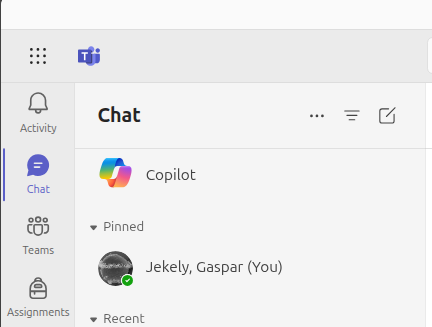
my Teams screen
my Whatsapp screen
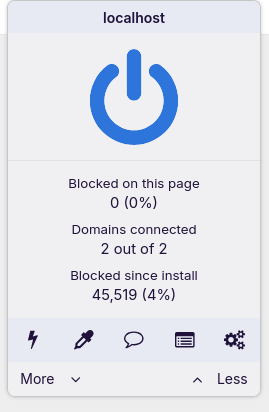
my uBlock Origin report (since June)
We are locked in…

- vendor lock-in, oligopoly, non-disclosure clauses
- update ratchet
- prestige fallacy (aka journal rank fallacy)
- data exploitation, surveillance
There is a way out…

“Remember, all I am offering, is the truth, nothing more.”
Take Back Control and Freedom – FOSS
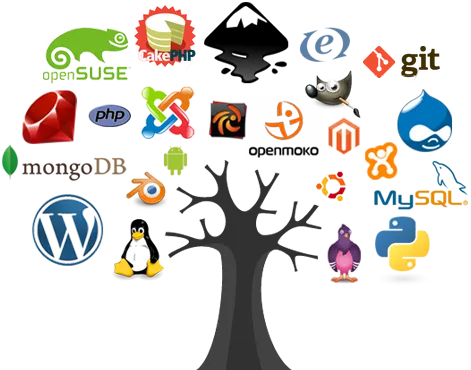
- Free and Open Source Software (FOSS)
- freedom to use, study, modify, and distribute it freely
- “open source” = accessibility to the source code
- encourages collaboration and transparency, fostering innovation and community-driven improvement
- 1989: release of the GNU General Public License (GPL)
- four key freedoms: to use, to study, to change, and to share software
- 1991: Linus Torvalds released the Linux kernel
Take Back Control and Freedom – Diamond OA
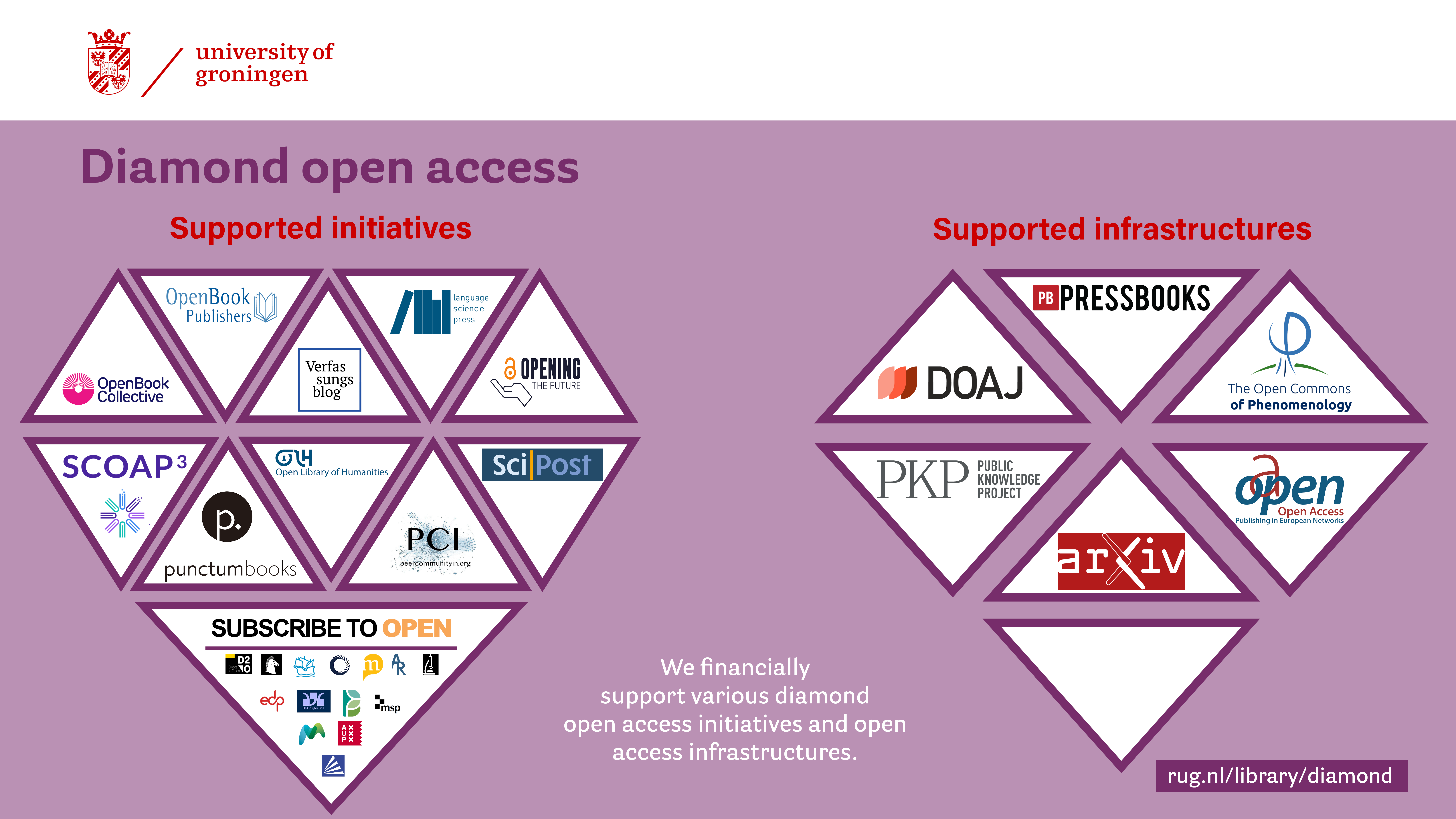
- Diamond open access journals, publication platforms, etc.
- no subscriptions fees
- no publication fees to authors (i.e. no Article Processing Charges or Book Processing Charges)
- non-profit, run by and for academics
- (still mostly an ideal)
A shift towards FOSS in the EU
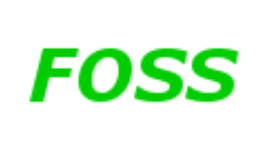
- Microsoft will extend Windows 10 support for another year after all
- however, users will need to subscribe to Microsoft 365
- their data and meta-information will be kept in a US-based datacenter
- when Trump imposed sanctions on the International Criminal Court (ICC), ICC’s chief prosecutor was reportedly locked out of his Microsoft email accounts
- France’s gendarmerie switched to Linux ~10 years ago, now 103,000 of their computers run Linux
- Schleswig-Holstein is bidding all Microsoft software adieu
- Denmark alsp dumped Windows and Office for Linux and LibreOffice
- Who is next? HD Uni??
Move away from US software and cloud services
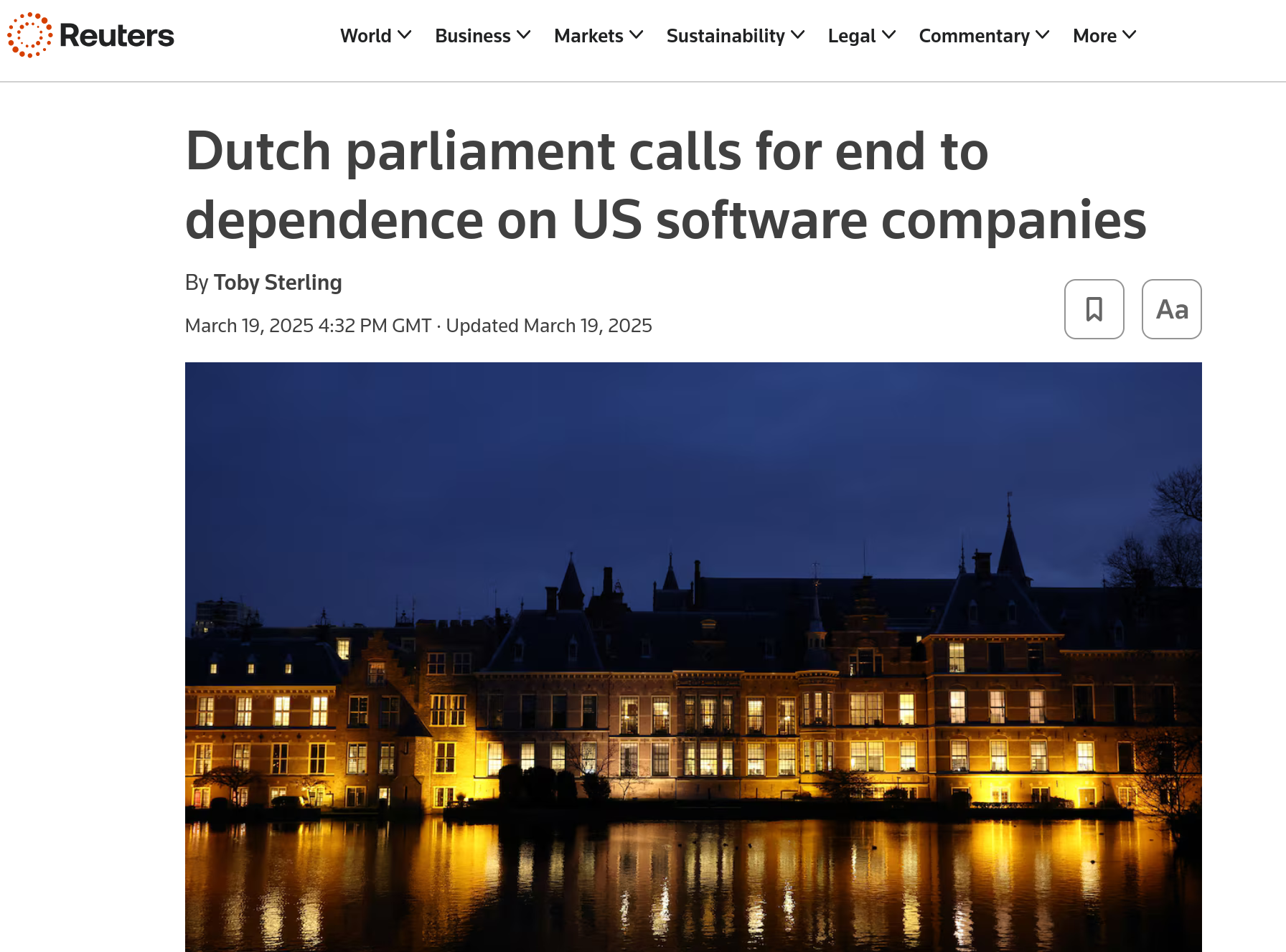
- In March 2025 the Netherlands’ parliament approved a series of motions calling on the government to reduce dependence on U.S. software companies
- creating a cloud services platform under Dutch control
- “do we feel comfortable with people like Trump, Zuckerberg and Musk ruling over our data?” (Marieke Koekkoek)
German Open Source Repository
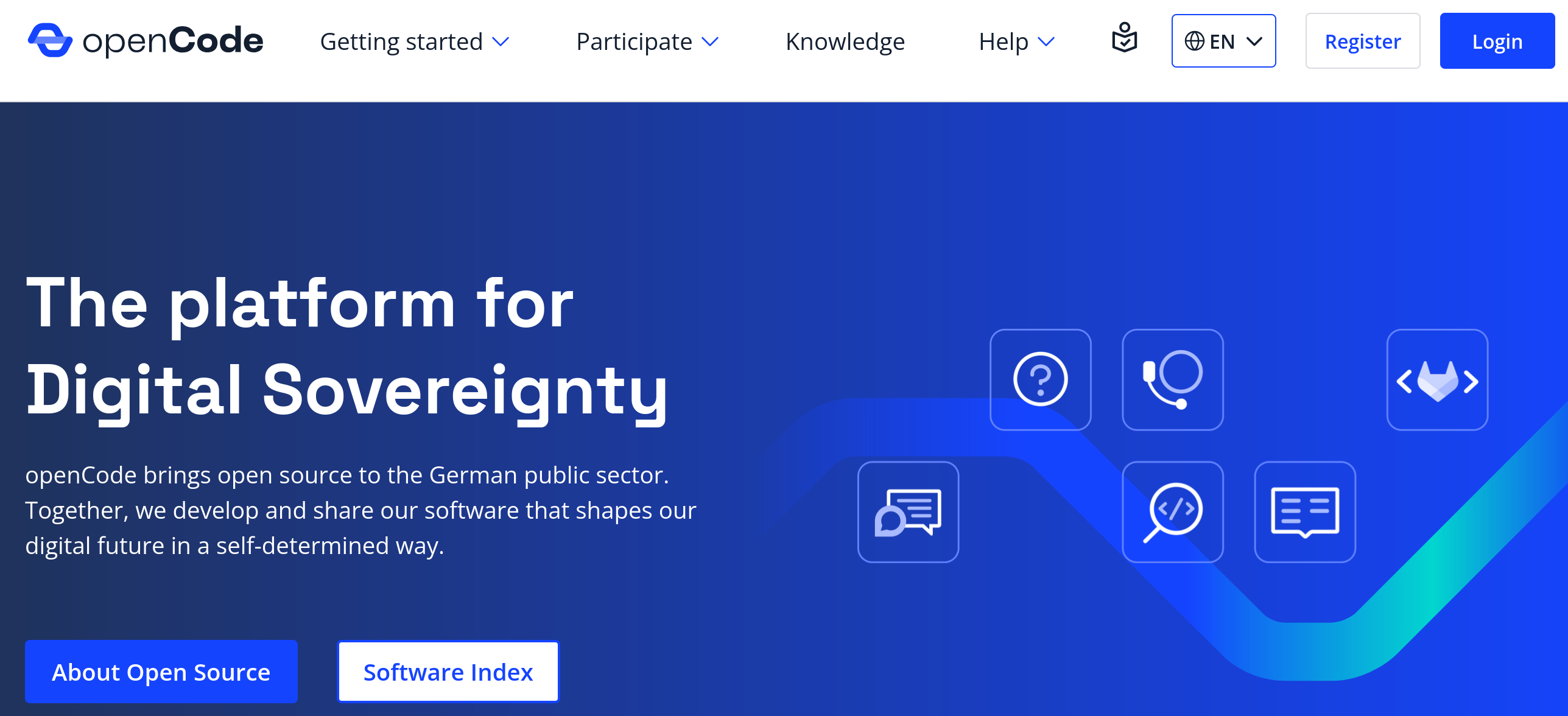
- Digital Sovereignty for Public Administration
- openCode brings open source to the German public sector
European Commission Open Source catalog
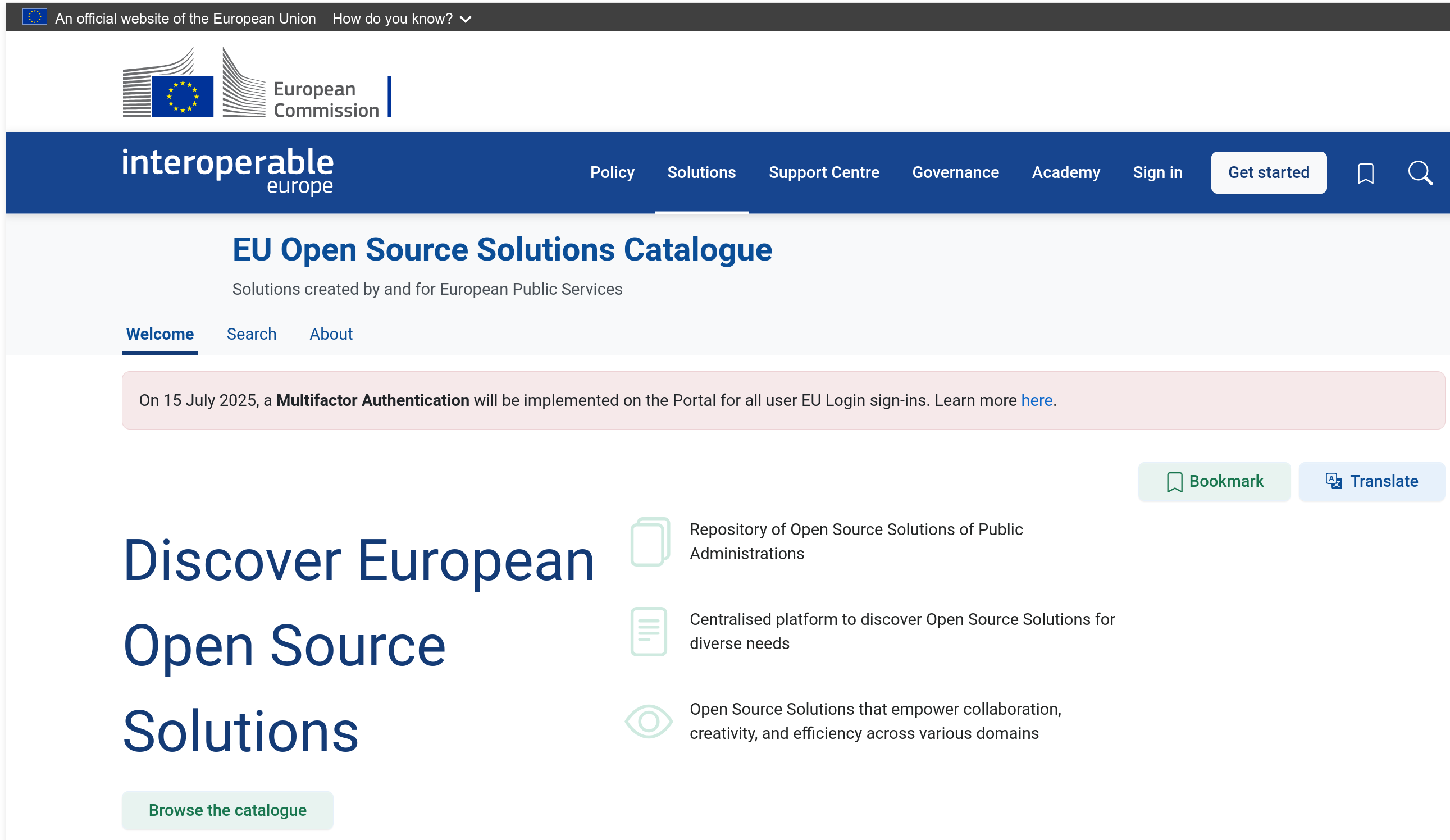
- EU software catalog
- so far 640 different programs
- collection is growing
- standardise e.g. EU administration
FOSS is control – take back control of your computer
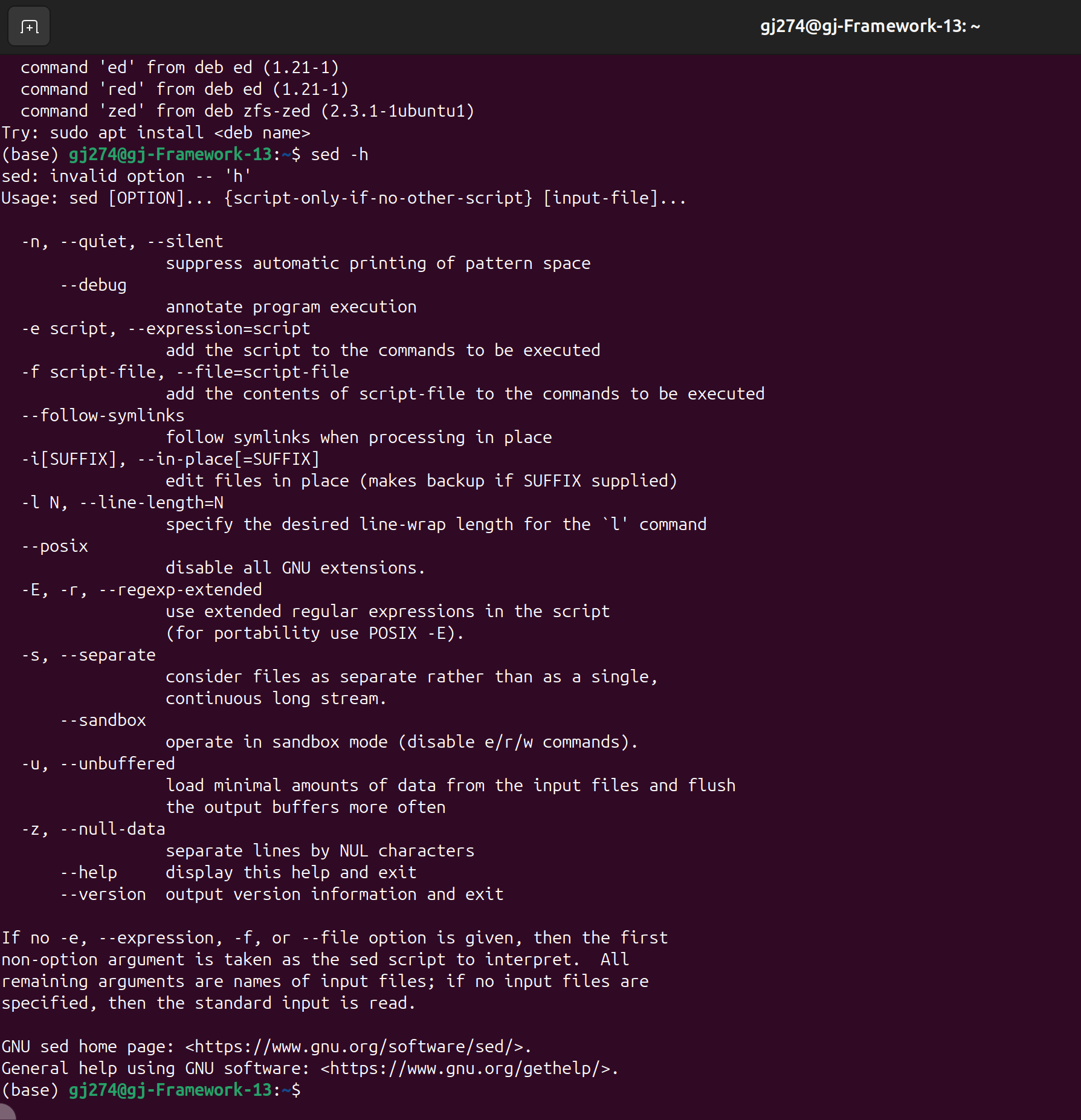
- unlike proprietary software, FOSS gives control over digital tools
- promotes principles of accessibility, customization, and shared knowledge
- FOSS empowers users to shape technology according to their needs and preferences
FOSS is powerful – Linux usage
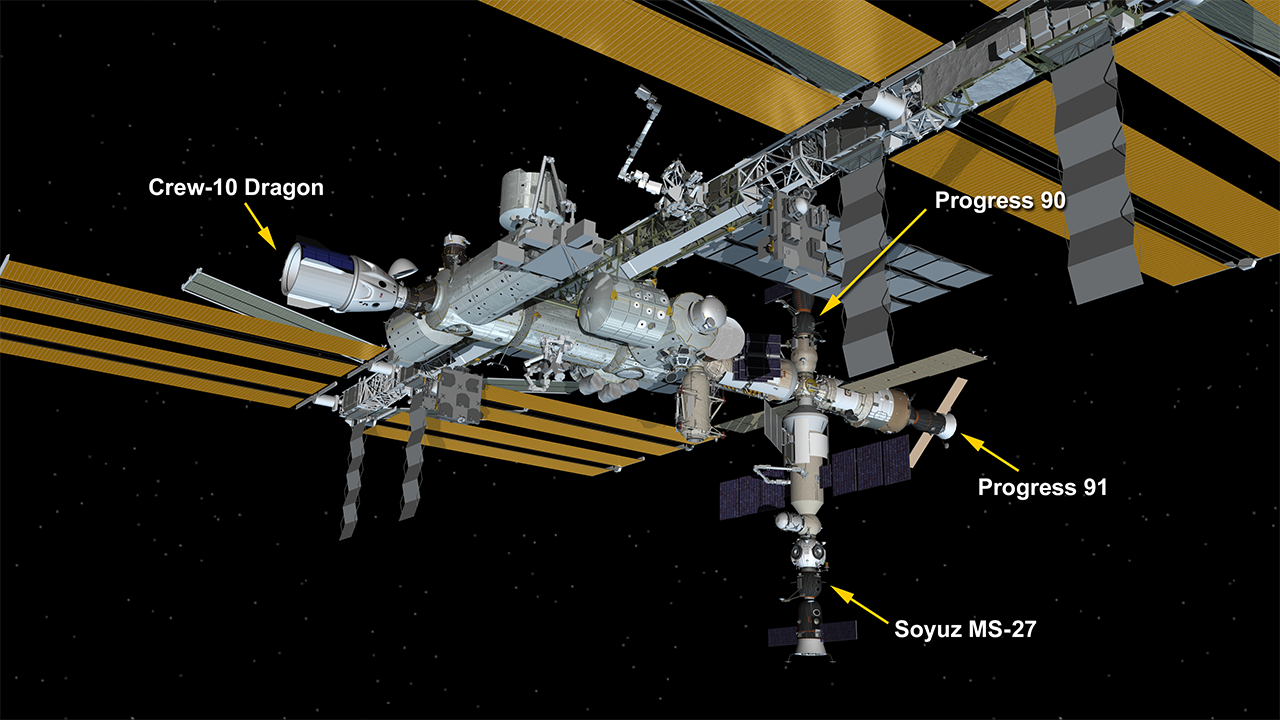
ISS, May 2025
- most websites run on Linux-based operating systems
- all of the world’s 500 most powerful supercomputers run on Linux
- Android (runs on a modified Linux kernel) accounts for the majority of mobile device operating systems
- ISS’ primary Command & Control computer runs on Debian Linux, a switch made from Windows in 2013 for reliability and flexibility
Open software, open hardware – my laptop
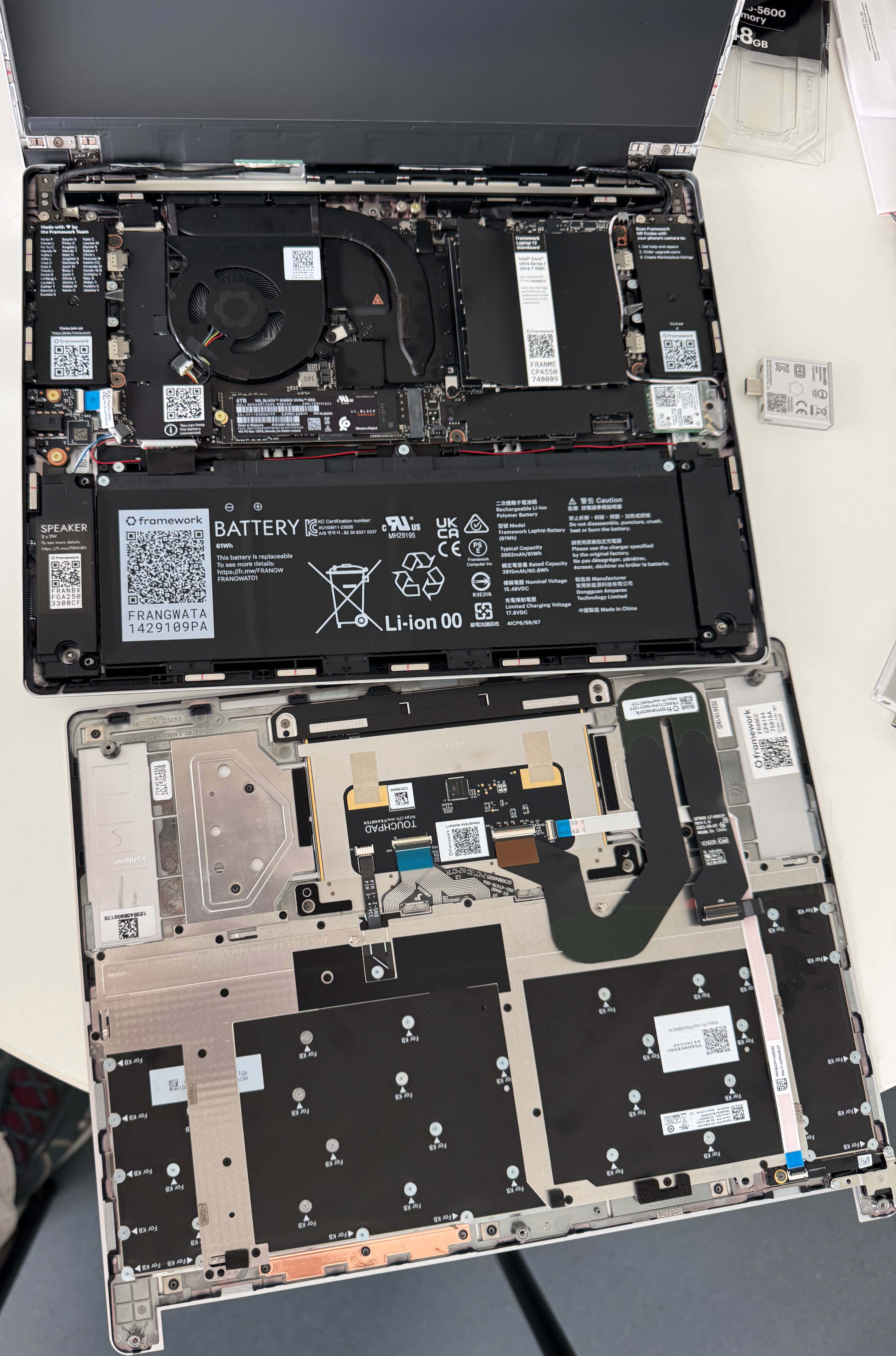
- 2x48 GiB RAM
- 4 TB storage
- 22 cores CPU (Intel® Core™ Ultra 7 155H)
- 4 exchangeable expansion cards (USB-C, HDMI, MicroSD, SD, storage …)
- repairable, upgradable (comes with screwdriver)
- price: ~2,400 EUR
- similar configuration from Apple: ~6,000 EUR
- runs Linux Ubuntu 25 and lots of FOSS
Learn to use (and build) your computer – efficiency gains
- let’s assume that an academic spends on average 20 h/week at a computer
- this is around 1000 h/year, or over 41 days = ~125 work days
- a 5% increase in efficiency would save 6 working days per year
- a 10% increase 12 days etc.
- taking our FOSS courses (command line tools, FOSS, RStudio paper writing, etc.) is guaranteed to increase efficiency and compatibility
- good return on time investment!
- also good for the openness of your science!
COS goes FOSS – lectures and hands-on training
- The command line
- Version control with Git and Codeberg
- The Linux OS, hackathon with your old computers
- Digital hygiene on the internet (trackers, passwd management, browsers, etc.)
- Literature search, Open Maps, Forms, Polls, etc.
- Open science and open publishing
- Structure prediction (AlphaFold, Boltz)
- The Fediverse and taking back control of social media
- Open hardware (Arduino, Raspberry PI)
- Paper writing with RStudio
- The GenAI shove and what to do about it
- … tbc.
COS goes FOSS – software tutorials
COS goes FOSS – programme
- COS lectures with tutorial: once per month, Thursdays at 15:00 (alternating with COS Seminar)
- planned dates: 2 Oct, 6 Nov, 27 Nov, 29 Jan, 26 Feb, 26 Mar, 30 Apr, 11 Jun, 2 Jul
- Teaching course/tutorials: starting on 22 October, weekly, Wednesdays at 8:15, 00.005
- Heidelberg Open Lab Workshops by Mateusz Kostecki et al.
- Instructors:
- GJ, Sanja Jasek
- Christine Schulz (Scientific Software Center Bio-Structure Hub)
- David Hug, Benedikt Dürr
- Mateusz Kostecki, …
Link to this lecture
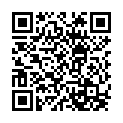
(It’s FOSS)



